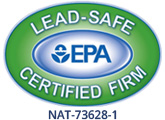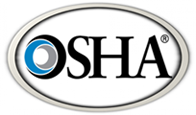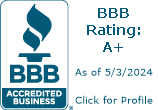Why Drain Cleaners Aren’t Always Plumbing Safe
 Chemical drain cleaners are often advertised as a quick solution to unclog pipes. While they may have worked on a small clog in the past, these cleaners are not recommended by plumbers for long-term usage.
Chemical drain cleaners are often advertised as a quick solution to unclog pipes. While they may have worked on a small clog in the past, these cleaners are not recommended by plumbers for long-term usage.
Drain cleaners use sodium hydroxide, sodium hypochlorite, sodium nitrate, sodium chloride or aluminum to create a chemical reaction that dissolves proteins and fats accumulating inside and blocking a pipe.
In the process, this reaction generates a significant amount of heat, which can lead to corrosion and eventually eat through your pipes if left unchecked.
Furthermore, the process isn’t effective on every clog, particularly tree roots and sewer backups. Before you use a drain cleaner, think about the following points.
Damage to Your Plumbing
This factor will have the greatest effect on your home. The caustic nature of a drain cleaner can cause internal and external damage to your plumbing system:
- Melting through PVC pipes
- Corroding iron or steel pipes
- Dissolving the finish of a sink or toilet bowl
- Cracking porcelain, leading to leaks from your sink or toilet
- Leaking or burst pipes, potentially leading to flooding
However, the risks and degree of damage can vary. Older or already-corroded pipes are more susceptible to damage; drain cleaner can accelerate an already significant amount of wear and tear.
Furthermore, drain cleaner doesn’t dissolve completely, so it should never be poured into the toilet, as it will gradually eat away at the enamel and finish, eventually cracking the porcelain.
Drain Cleaner Sticks Around
Advertisements depict drain cleaner washing away as it dissolves the clog in your pipes. However, the gel-like substance tends to remain following usage, sometimes for weeks. Initially, this appears to be a benefit: Your pipes seem clear and this prevents future blockages.
As this occurs, the drain cleaner continues to eat away at your pipes’ interior, increasing the risk of leaks and flooding. The substance also generates fumes you can breathe in, even if you can’t smell them.
Yet, drain cleaners don’t provide a permanent solution. Due to your habits or the quality of the pipes, you may find the clog returns after a few months, causing you to seek professional assistance.
Not Effective on Everything
Not every clog is created equal. While drain cleaner may work on hair, fats and other accumulations, it’s ineffective on foreign objects, including tree roots and items that may have fallen into the pipe, and won’t clear away mineral deposits. When a sewer line issue is behind the clog, pouring drain cleaner into the pipe won’t lessen the issue. Instead, it could cause a leak by lingering in your plumbing system.
In turn, even if you use a natural solution over a chemical-based cleaner, it’s a good idea to determine why your pipes are clogged before pouring any product down the drain.
Skin Damage
Drain cleaner can do more than damage your pipes. This alkali-based solution has been known to severely burn skin, irritate the eyes and throat, and cause lung damage when inhaled. Swallowing the substance can result in significant harm, if not a fatal injury. For these reasons, drain cleaner:
- Should be stored out of reach of small children
- Shouldn’t be mixed with other household cleaners, as it may generate toxic gases
- Must be handled with caution to avoid direct exposure
Polluting Local Water Source
After leaving your plumbing system, drain cleaners eventually end up in a local water source, polluting lakes, rivers, ponds, oceans and ground water, along with other toxic substances. Avoiding chemical drain cleaners reduces your impact on the environment and is one step toward keeping local water sources clean for human and animal populations.
Are you dealing with a stubborn clog that won’t go away? Have one of our professionals inspect your plumbing system. To schedule an appointment, contact MJ Fahy & Sons today.




